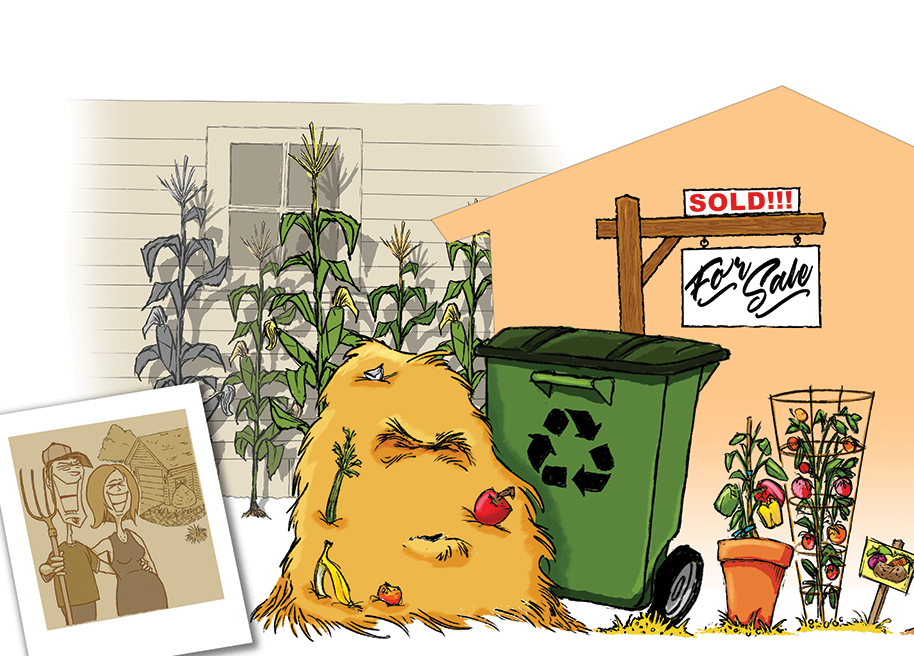Have you seen those Progressive insurance commercials about young homeowners turning into their parents? It’s happening to me.
As a first-time homeowner, it’s like I’ve suddenly entered into Kafka’s Metamorphosis. But instead of waking up one day as a beetle, I’m waking up as my parents.
I can make small lifestyle changes to reduce my carbon footprint
With the weather warming up, I have been getting my yard ready for my first season of landscaping and gardening. All of a sudden, I’m caring about the things that my parents have cared about for years: planting flowers, having the perfect straight line in the mowed grass, pulling weeds, etc.
With homeownership has also come a sense of responsibility. Now that I’m creating my own garbage and paying my own bills, I can see exactly how much waste I’m creating and how much energy I’m using.
I’ve realized that I can make small lifestyle changes to reduce my carbon footprint. There’s not much I understand about kids these days — there I go sounding like my parents again — but I do get their passion for creating a brighter future for our environment.
Starting a garden and eating local
Being the good millennial that I am, I love the idea of eating local and organic. And what’s more local and organic than food grown in the backyard?
I have wild ideas about everything I want to grow, and if I had multiple acres of land, I’d grow it all. But since I have a modest backyard and have never attempted to grow fruits and vegetables, I’m starting with just a couple.
When I was little, my dad grew a few rows of corn behind our garage. Before my offer was even accepted by the seller of my home, I was already planning where I’d plant the corn and continue the tradition my dad set forth in the ‘90s.
Composting
The former homeowner started a compost pile in the backyard, which I gratefully inherited. Not only did it do a small part for the environment while they used it, it will also do a small part in my garden.
Having the compost bin already started has also been an advantage. I’m quickly learning all about what can be composted. Also startling is finding out what can’t be composted and how much I use of those materials in my everyday life, like glossy papers and wrappers.
Indoor sustainability
In this quest to live more sustainably, I phased out disposable napkins and plates in favor of real dishes and cloth napkins. A small change, but I was going through more paper napkins than one small person deserved in a lifetime. I’ve also consciously used real towels instead of paper towels.
In addition, I try to keep up with the usual things: Only keep the water on while I’m actively washing my hands or brushing my teeth, turn the lights out in rooms I’m not using, take shorter showers, and switch to LED lightbulbs. It saves money and the planet.
my efforts are small, but I’m excited to see the sustainability of my home and my garden grow
And most importantly, I indulge in the small fee and recycle every other week. I try to pay close attention to what can be recycled. I try to recycle absolutely everything that can possibly be recycled, which sometimes means taking tiny little staples out of miscellaneous mail and ruthlessly scrubbing stickers off of bottles.
All of a sudden, I’m caring about the things that my parents have cared about for years
It’s very simple and my efforts are small, but I’m excited to see the sustainability of my home and my garden grow. Maybe turning into my parents and caring about my new home isn’t so bad after all.





